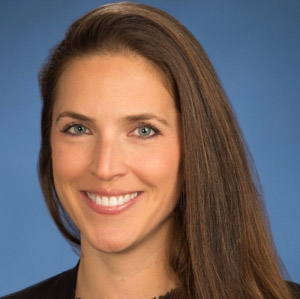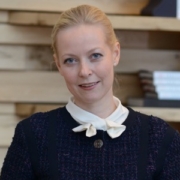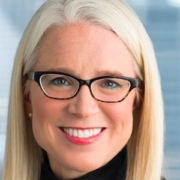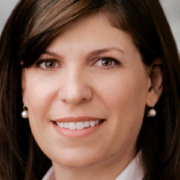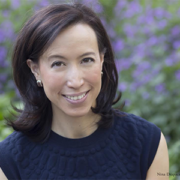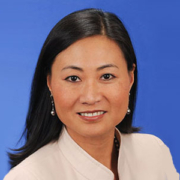Stephanie Rader, Partner, Goldman Sachs, Securities Division
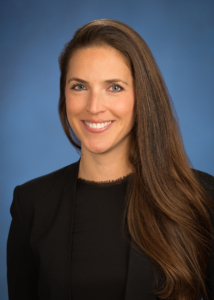 Stephanie Rader, head of the Distressed Sales and Bank Loan Sales Group, is a program co-sponsor of the 2019 Women’s Career Strategies Initiative (WCSI), an annual program at Goldman Sachs that provides high-performing women associates access to training sessions, resources and touchpoints with senior leaders across the firm. Associates are encouraged to develop their leadership skills, identify ways to enhance their commercial impact, evaluate the work-life equation, and manage their careers proactively. In a roundtable session hosted for WCSI participants, Rader reflected on her career at the firm and shared advice with this year’s WCSI class.
Stephanie Rader, head of the Distressed Sales and Bank Loan Sales Group, is a program co-sponsor of the 2019 Women’s Career Strategies Initiative (WCSI), an annual program at Goldman Sachs that provides high-performing women associates access to training sessions, resources and touchpoints with senior leaders across the firm. Associates are encouraged to develop their leadership skills, identify ways to enhance their commercial impact, evaluate the work-life equation, and manage their careers proactively. In a roundtable session hosted for WCSI participants, Rader reflected on her career at the firm and shared advice with this year’s WCSI class.
A 15-year veteran of the firm who initially began her career at Goldman Sachs as an intern, Rader started by reminding attendees to have the courage and confidence to ‘go for the ball.’
Rader shared: “As Billie Jean King said, pressure is a privilege; if you’re doing well and excelling in your current role, others will inherently begin to give you more work because they know you can deliver.”
She adds, “While being responsible for a significant number of deliverables and leading on projects can be stressful, you need to remind yourself that you’re being given a chance to excel – one that others around you might not receive – and you should take advantage of those opportunities.”
Rader, who joined the firm after graduating from Duke University with a bachelor’s degree in public policy and economics, was presented with many such opportunities during the financial crisis.
“Throughout, I jumped in and helped out with various clients, because everyone was moving so fast,” she told the WCSI Class of 2019. “I learned an incredible amount during this time period and it helped set me up for success down the line.”
Taking Advantage of Rapid Change
“If you find yourself in a moment in your career where you feel stalled, remember that things can change very fast,” Rader recalled. “Create your own luck by putting in the work and preparation now so you can take advantage of opportunities when change occurs, which it always inevitably does.”
Rader acknowledged that in the absence of change, individuals can identify other ways to present themselves as rising leaders. Her recommendation: “Be vocal in meetings with your questions and ideas, invest time developing the analysts on your teams and be the go-to expert in your space.”
Leveraging Methodical Postings
Rader, who covers both asset managers and hedge funds, also manages a team of 14 sales people. When working in a fast-paced environment, Rader highlighted the importance of ensuring your manager and stakeholders are aware of the internal and external projects you are working on. “Don’t wait until your annual feedback to connect with your manager.” She recommends scheduling a regular touchpoint and sharing a comprehensive list of your completed deliverables and ongoing projects.
“It’s so important for people to know and be aware of the work you’re doing – while we expect our colleagues and our manager to automatically know about our projects, do not assume they are aware of what you are working on unless you post them directly.”
The Work-Life Equation
“At different points in your career you’re going to need different things, whether that’s time to adjust to being a new mom, caring for a parent, or tending to your own health,” Rader reflected. “While it’s good to make plans and set goals, both our professional and personal lives can take unexpected turns. Be flexible in adjusting course, be patient with yourself and don’t be afraid to ask for help.”
As a mom to a six-year-old and one-year-old, Rader told participants she tries to be fully invested in the present moment in order to maximize her time at work and her time at home: “When I’m at work, I’m completely plugged into the desk and work as efficiently as possible. When I’m at home, my kids are my priority.”
Reflecting on Goldman Sachs’ work environment since she joined in 2004, Rader notes, “Managers recognize now that if you’re happy outside of Goldman Sachs, you’re going to be more productive when you’re at the office – as a result I think our culture has become more flexible and inclusive over time.”

